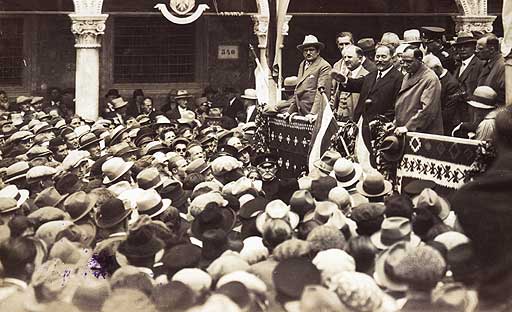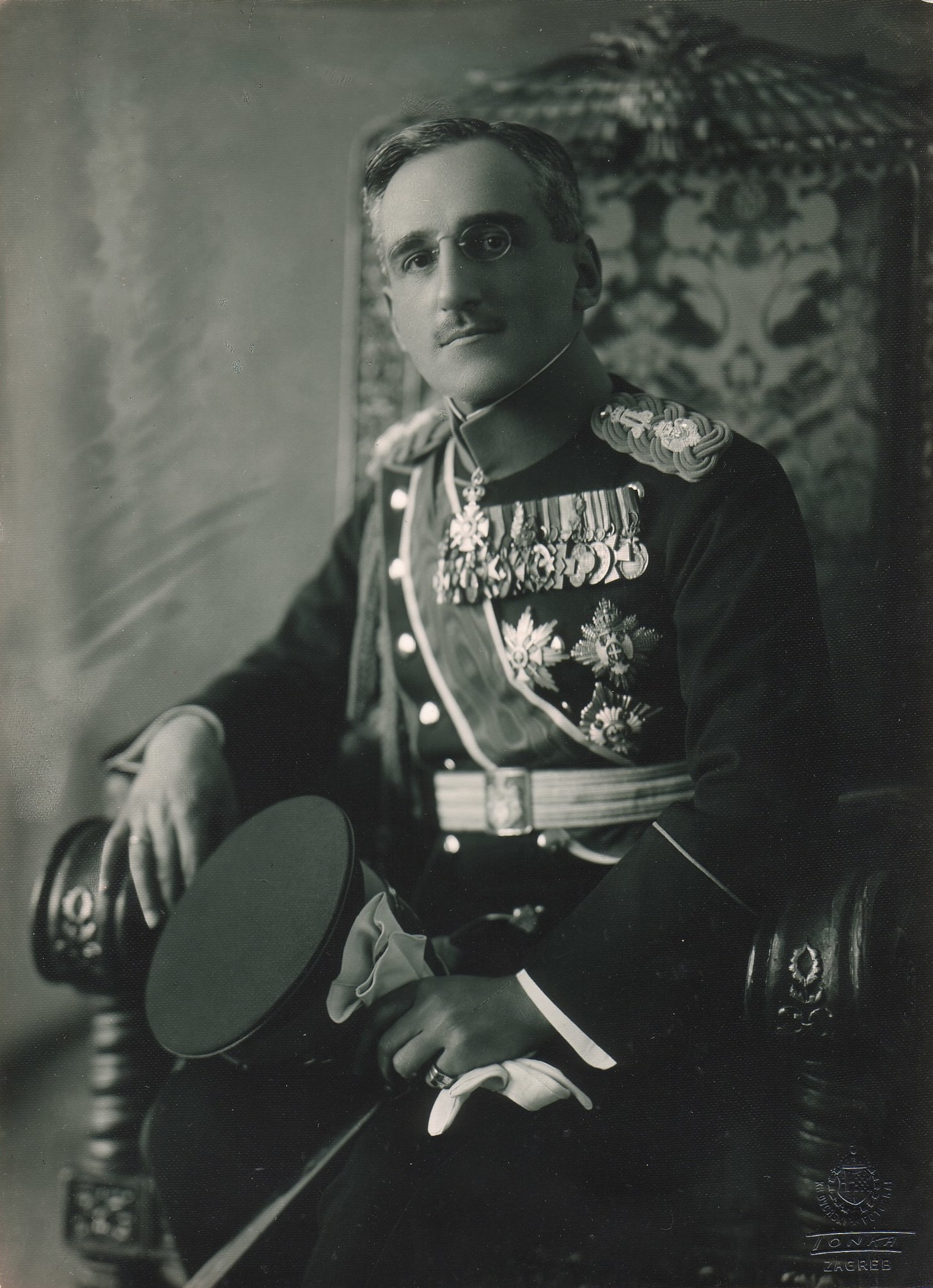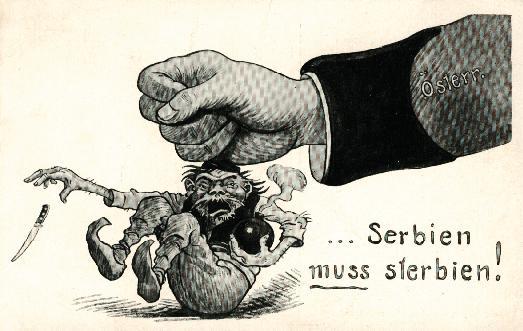|
Juraj Krnjević
Juraj Krnjević (19 February 1895 – 9 January 1988) was a Croatian politician who was among the leaders of the Croatian Peasant Party (HSS).Biondich, Mark (2007). Vladko Macek and the Political Right in Croatia, 1928–1941. ''Contemporary European History'', 16: 203–213, Cambridge University Press. He was the party's General Secretary since 1928 and President since 1964. He also served as the First Deputy Prime Minister and Minister of Post, Telegraph and Telephone of Yugoslavia between 1942 and 1943. Early life Krnjević was born in Ivanić-Grad (Croatia, then part of Austro-Hungarian Empire). Mate Krnjević and Ana (née Marčinić) had two sons, Juraj and the five years younger Cvjetko. After primary schooling in Ivanić, both brothers went to the classical gymnasium in Zagreb. Juraj went on to study law, and Cvjetko, medicine. In a country with an overwhelmingly peasant population – freed from serfdom only after 1845 – only a tiny fraction, mainly of town-dwell ... [...More Info...] [...Related Items...] OR: [Wikipedia] [Google] [Baidu] |
Croatian Peasant Party
The Croatian Peasant Party (, HSS) is an agrarianism, agrarian List of political parties in Croatia, political party in Croatia founded on 22 December 1904 by Antun Radić, Antun and Stjepan Radić as Croatian Peoples' Peasant Party (HPSS). The Brothers Radić believed that the realization of Croatian statehood was possible within Austria-Hungary, but that it had to be reformed as a Monarchy divided into Trialism in Austria-Hungary, three equal parts – Austria, Hungary and Croatia. After the creation of Kingdom of Yugoslavia in 1918, the Party requested for the Croatian part of the Kingdom to be based on self-determination. This brought them great public support which culminated in 1920 Kingdom of Serbs, Croats and Slovenes Constitutional Assembly election, 1920 parliamentary election when HPSS won all 58 seats assigned to Croatia. In 1920, disgruntled with a bad position of Croats in the Kingdom, the party changed its name into Croatian Republican Peasant Party (HRSS) and sta ... [...More Info...] [...Related Items...] OR: [Wikipedia] [Google] [Baidu] |
Gymnasium (school)
''Gymnasium'' (and Gymnasium (school)#By country, variations of the word) is a term in various European languages for a secondary school that prepares students for higher education at a university. It is comparable to the US English term ''University-preparatory school, preparatory high school'' or the British term ''grammar school''. Before the 20th century, the gymnasium system was a widespread feature of educational systems throughout many European countries. The word (), from Greek () 'naked' or 'nude', was first used in Ancient Greece, in the sense of a place for both physical and intellectual education of young men. The latter meaning of a place of intellectual education persisted in many European languages (including Albanian language, Albanian, Bulgarian language, Bulgarian, Czech language, Czech, Dutch language, Dutch, Estonian language, Estonian, Greek language, Greek, German language, German, Hungarian language, Hungarian, Macedonian language, Macedonian, Montene ... [...More Info...] [...Related Items...] OR: [Wikipedia] [Google] [Baidu] |
Foreign Office
Foreign may refer to: Government * Foreign policy, how a country interacts with other countries * Ministry of Foreign Affairs, in many countries ** Foreign Office, a department of the UK government ** Foreign office and foreign minister * United States state law, a legal matter in another state Science and technology * Foreign accent syndrome, a side effect of severe brain injury * Foreign key, a constraint in a relational database Arts and entertainment * Foreign film or world cinema, films and film industries of non-English-speaking countries * Foreign music or world music * Foreign literature or world literature * ''Foreign Policy Foreign policy, also known as external policy, is the set of strategies and actions a State (polity), state employs in its interactions with other states, unions, and international entities. It encompasses a wide range of objectives, includ ...'', a magazine Music * "Foreign", a song by Jessica Mauboy from her 2010 album '' Get 'Em G ... [...More Info...] [...Related Items...] OR: [Wikipedia] [Google] [Baidu] |
Léon Blum
André Léon Blum (; 9 April 1872 – 30 March 1950) was a French socialist politician and three-time Prime Minister of France. As a Jew, he was heavily influenced by the Dreyfus affair of the late 19th century. He was a disciple of socialist leader Jean Jaurès. After Jaurès' assassination in 1914, he became his successor. Despite Blum's relatively short tenures, his time in office was very influential. As Prime Minister in the left-wing Popular Front government in 1936–1937, he provided a series of major economic and social reforms. Blum declared neutrality in the Spanish Civil War (1936–1939) to avoid the civil conflict spilling over into France itself. Once out of office in 1938, he denounced the appeasement of Germany. When Germany defeated France in 1940, Blum became a staunch opponent of Vichy France. Tried (but never judged) by the Vichy government on charges of treason, he was imprisoned in the Buchenwald concentration camp. After the war, he resumed a transi ... [...More Info...] [...Related Items...] OR: [Wikipedia] [Google] [Baidu] |
Quai D'Orsay
The Quai d'Orsay ( , ) is a quay in the 7th arrondissement of Paris. It is part of the left bank of the Seine opposite the Place de la Concorde. It becomes the Quai Anatole-France east of the Palais Bourbon, and the Quai Branly west of the Pont de l'Alma. The seat of the Ministry of Foreign Affairs (the ''Hôtel du ministre des Affaires étrangères'') is located on the Quai d'Orsay, between the Esplanade des Invalides and the National Assembly at the Palais Bourbon; thus the ministry is often called the "Quai d'Orsay" in the press by metonymy. The building housing the Ministry of Foreign Affairs was built between 1844 and 1855 by Jacques Lacornée. The statues of the facade were created by the sculptor Henri de Triqueti (1870). The 1919 Treaty of Versailles was negotiated and written at the Ministry of Foreign Affairs. History The Quai d'Orsay (originally until the Rue du Bac in the east) has historically played an important role in French art as a location to which m ... [...More Info...] [...Related Items...] OR: [Wikipedia] [Google] [Baidu] |
League Of Nations
The League of Nations (LN or LoN; , SdN) was the first worldwide intergovernmental organisation whose principal mission was to maintain world peace. It was founded on 10 January 1920 by the Paris Peace Conference (1919–1920), Paris Peace Conference that ended the World War I, First World War. The main organisation ceased operations on 18 April 1946 when many of its components were relocated into the new United Nations (UN) which was created in the aftermath of the World War II, Second World War. As the template for modern global governance, the League profoundly shaped the modern world. The League's primary goals were stated in its Covenant of the League of Nations, eponymous Covenant. They included preventing wars through collective security and Arms control, disarmament and settling international disputes through negotiation and arbitration. Its other concerns included labour conditions, just treatment of native inhabitants, Human trafficking, human and Illegal drug tra ... [...More Info...] [...Related Items...] OR: [Wikipedia] [Google] [Baidu] |
August Košutić
August Košutić (5 August 1893 – 12 November 1964) was a Croatian politician and a prominent member of the Croatian Peasant Party (HSS). As a member of the HSS, Košutić traveled through Europe and United States to inform the world public about the Serb hegemonist policy of the Kingdom of Yugoslavia and the "Croatian issue". Because of his activity he was often arrested by the Yugoslav authorities, and in 1924 he was a victim of an assassination attempt. Between 1926 and 1927 he was briefly the Minister of Construction where he made great efforts in combating corruption. During the World War II, in the Independent State of Croatia, he was most notable for his participation in the abortive Lorković-Vokić plot in 1944, a coup which had the goal of establishing a coalition government between the ''Ustaše'' and the HSS and align the Independent State of Croatia (NDH) with the Allies. After the war, he became politically inactive. Early life Košutić was born in Radoboj, ne ... [...More Info...] [...Related Items...] OR: [Wikipedia] [Google] [Baidu] |
Ante Pavelić
Ante Pavelić (; 14 July 1889 – 28 December 1959) was a Croatian politician who founded and headed the fascist ultranationalist organization known as the Ustaše in 1929 and was dictator of the Independent State of Croatia (NDH), a fascist List of World War II puppet states, puppet state built out of parts of occupied Kingdom of Yugoslavia, Yugoslavia by the authorities of Nazi Germany and Fascist Italy, from 1941 to 1945. Pavelić and the Ustaše persecuted many racial minorities and political opponents in the NDH during the war, including Serbs of Croatia, Serbs, Jews in Croatia, Jews, Romani people in Croatia, Romani, and Yugoslav Partisans, anti-fascists, becoming one of the key figures of the Genocide of Serbs in the Independent State of Croatia, genocide of Serbs, the Genocide of Romani people in the Independent State of Croatia, Porajmos and the The Holocaust in the Independent State of Croatia, Holocaust in the NDH. At the start of his career, Pavelić was a lawy ... [...More Info...] [...Related Items...] OR: [Wikipedia] [Google] [Baidu] |
January 6th Dictatorship
The 6 January Dictatorship ( sr-Cyrl-Latn, Шестојануарска диктатура, Šestojanuarska diktatura; ; ) was a royal dictatorship established in the Kingdom of Serbs, Croats and Slovenes (Kingdom of Yugoslavia after 1929) by King Alexander I (r. 1921–34) with the ultimate goal to create a Yugoslav ideology and a single Yugoslav nation. It began on 6 January 1929, when the king prorogued parliament and assumed control of the state, and ended with the 1931 Yugoslav Constitution. History In 1928, Croatian Peasant Party leader Stjepan Radić was assassinated in the Parliament of Yugoslavia by a Montenegrin Serb leader and People's Radical Party politician Puniša Račić, during a tense argument. On 6 January 1929, using as a pretext the political crisis triggered by the shooting, King Alexander abolished the Vidovdan Constitution, prorogued the Parliament and assumed dictatorial powers. He appointed a cabinet solely responsible to him, and imposed tight ... [...More Info...] [...Related Items...] OR: [Wikipedia] [Google] [Baidu] |
Anti-Serb Sentiment
Anti-Serb sentiment or Serbophobia ( sr-Cyrl-Latn, србофобија, srbofobija, separator=" / ") is a generally negative view of Serbs as an ethnic group. Historically it has been a basis for the persecution of ethnic Serbs. A distinctive form of anti-Serb sentiment is anti-Serbian sentiment, which can be defined as a generally negative view of Serbia as a nation-state for Serbs. Another form of anti-Serb sentiment is a generally negative view of Republika Srpska, the Serb-majority entity in Bosnia and Herzegovina. The best known historical proponent of anti-Serb sentiment was the 19th- and 20th-century Croatian Party of Rights. The most extreme elements of this party became the Ustaše in the Kingdom of Yugoslavia, a Croatian fascist organization that came to power during World War II and instituted racial laws that specifically targeted Serbs, Jews, Roma and dissidents. This culminated in the genocide of Serbs and members of other minority groups that lived in the In ... [...More Info...] [...Related Items...] OR: [Wikipedia] [Google] [Baidu] |
Kingdom Of Serbs, Croats And Slovenes
The Kingdom of Yugoslavia was a country in Southeast and Central Europe that existed from 1918 until 1941. From 1918 to 1929, it was officially called the Kingdom of Serbs, Croats, and Slovenes, but the term "Yugoslavia" () has been its colloquial name as early as 1922 due to its origins. "Kraljevina Jugoslavija! Novi naziv naše države. No, mi smo itak med seboj vedno dejali Jugoslavija, četudi je bilo na vseh uradnih listih Kraljevina Srbov, Hrvatov in Slovencev. In tudi drugi narodi, kakor Nemci in Francozi, so pisali že prej v svojih listih mnogo o Jugoslaviji. 3. oktobra, ko je kralj Aleksander podpisal "Zakon o nazivu in razdelitvi kraljevine na upravna območja", pa je bil naslov kraljevine Srbov, Hrvatov in Slovencev za vedno izbrisan." (Naš rod ("Our Generation", a monthly Slovene language periodical), Ljubljana 1929/30, št. 1, str. 22, letnik I.) The official name of the state was changed to "Kingdom of Yugoslavia" by King Alexander I on 3 October 1929. The pre ... [...More Info...] [...Related Items...] OR: [Wikipedia] [Google] [Baidu] |
Kingdom Of Serbia
The Kingdom of Serbia was a country located in the Balkans which was created when the ruler of the Principality of Serbia, Milan I of Serbia, Milan I, was proclaimed king in 1882. Since 1817, the Principality was ruled by the Obrenović dynasty (replaced by the Karađorđević dynasty for a short time). The Principality, under the suzerainty of the Ottoman Empire, ''de facto'' achieved full independence when the very last Ottoman troops left Belgrade in 1867. The Treaty of Berlin (1878), Congress of Berlin in 1878 recognized the formal independence of the Principality of Serbia, and in its composition Nišava District, Nišava, Pirot District, Pirot, Toplica District, Toplica and Vranje districts entered the Southern and Eastern Serbia, South part of Serbia. In 1882, Serbia was elevated to the status of a kingdom, maintaining a foreign policy friendly to Austria-Hungary. Between 1912 and 1913, Serbia greatly enlarged its territory through engagement in the First Balkan War, Fi ... [...More Info...] [...Related Items...] OR: [Wikipedia] [Google] [Baidu] |





